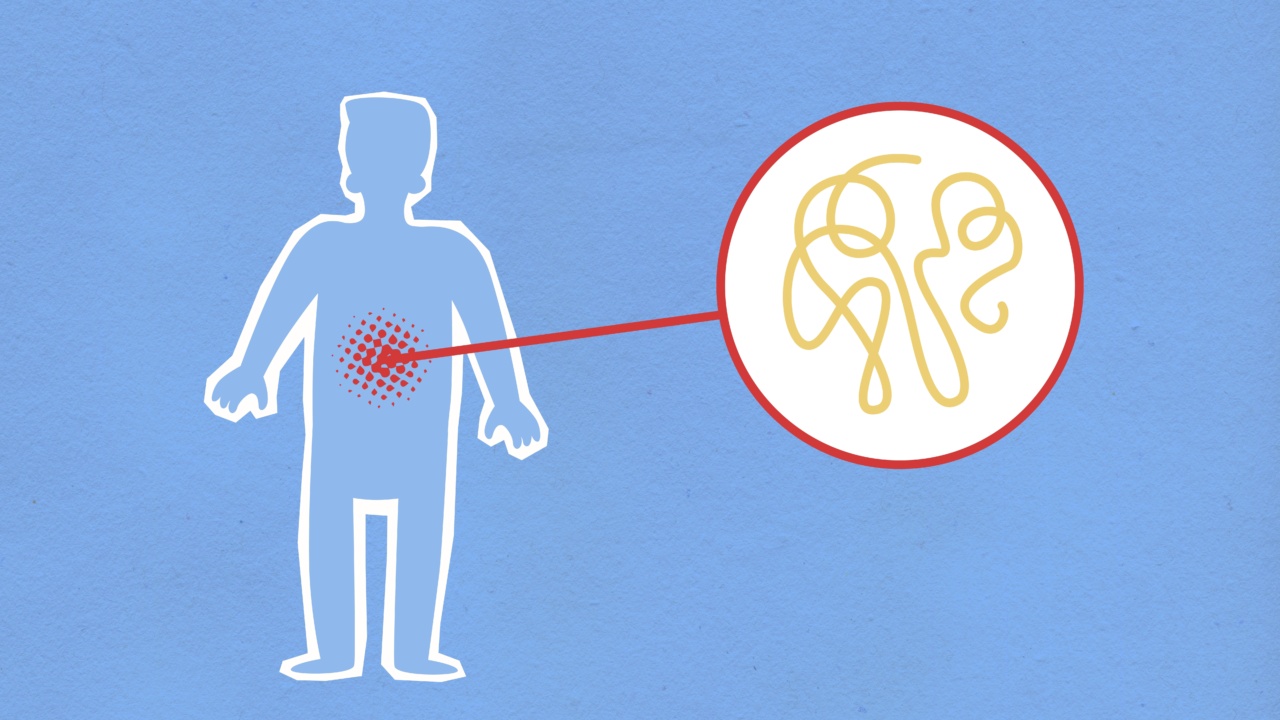Inflammation is a vital part of the body’s immune response, helping to fight off infections and injuries. However, when inflammation becomes chronic and sustained, it can have detrimental effects on our health.
Many people are unaware of the hidden inflammation that may be silently damaging their bodies every day. In this article, we will explore the causes, symptoms, and management of hidden inflammation to promote a healthier body and reduce the risk of chronic diseases.
Understanding Chronic Inflammation
Chronic inflammation is a long-term, low-level inflammation that persists even when there is no apparent injury or infection. It is often caused by factors such as poor diet, sedentary lifestyle, stress, environmental toxins, and genetic predisposition.
Unlike acute inflammation, which is a short-lived response to injury or infection, chronic inflammation can linger for months or even years.
The Impact of Hidden Inflammation on Health
Hidden inflammation plays a significant role in the development and progression of various chronic diseases. It has been linked to conditions such as cardiovascular disease, diabetes, obesity, autoimmune disorders, and even cancer.
Inflammation damages tissues and organs, disrupts normal cellular function, and weakens the immune system, making the body more susceptible to diseases and infections.
Identifying Hidden Inflammation
Detecting hidden inflammation can be challenging as it often presents with subtle symptoms or no symptoms at all. However, there are certain signs that may indicate the presence of chronic inflammation in the body.
These include persistent fatigue, joint pain, frequent infections, digestive issues, headaches, skin problems, and mood disorders. If you experience any of these symptoms regularly, it is essential to consult a healthcare professional for a comprehensive evaluation.
Diagnostic Tools for Hidden Inflammation
Several diagnostic tests can help uncover hidden inflammation in the body. These include blood tests that measure markers of inflammation such as C-reactive protein (CRP) and erythrocyte sedimentation rate (ESR).
Additionally, imaging tests like magnetic resonance imaging (MRI) and ultrasonography can identify inflammation in specific organs or tissues.
The Role of Diet in Inflammation
One of the primary drivers of hidden inflammation is an unhealthy diet. Certain foods can trigger an inflammatory response, while others possess anti-inflammatory properties.
To uncover hidden inflammation, it is crucial to focus on consuming a nutrient-rich, anti-inflammatory diet that includes plenty of fruits, vegetables, whole grains, lean proteins, and healthy fats like omega-3 fatty acids. Avoiding processed foods, excessive sugar, refined carbohydrates, and trans fats can also help reduce inflammation in the body.
The Impact of Lifestyle on Inflammation
Besides diet, various lifestyle factors contribute to hidden inflammation. Sedentary behavior, smoking, excessive alcohol consumption, poor stress management, and inadequate sleep can all promote chronic inflammation.
Engaging in regular physical activity, quitting smoking, moderating alcohol intake, practicing stress-reducing techniques like mindfulness or meditation, and prioritizing sufficient sleep are essential in managing hidden inflammation.
Managing Inflammation through Supplementation
In addition to dietary and lifestyle changes, certain supplements can help combat hidden inflammation.
Natural anti-inflammatory agents such as curcumin (found in turmeric), omega-3 fatty acids, resveratrol, quercetin, and ginger extract have shown promise in reducing inflammation within the body. However, it is important to consult with a healthcare professional before starting any new supplements to ensure their safety and effectiveness.
The Importance of Stress Management
Chronic stress contributes significantly to hidden inflammation. Prolonged stress activates the body’s inflammatory response, which, when persistent, can lead to chronic inflammation.
Employing stress management techniques such as regular exercise, deep breathing exercises, yoga, meditation, and engaging in hobbies or activities that bring joy can help reduce stress levels and alleviate hidden inflammation.
Sleep and Inflammation
Adequate sleep is crucial for maintaining a healthy immune system and managing inflammation. Several studies have shown a link between poor sleep patterns and increased levels of inflammation markers in the body.
Aim for 7-9 hours of quality sleep each night to promote proper immune function, reduce inflammation, and support overall well-being.
The Power of Mindfulness
Mindfulness practices, such as meditation and deep breathing exercises, have been found to have significant anti-inflammatory effects.
These practices help calm the mind, reduce stress, and promote a sense of well-being, indirectly reducing hidden inflammation in the body. Incorporating mindfulness exercises into your daily routine can have a profound impact on your overall health.
Personalized Approach to Inflammation Management
Every individual is unique, and the causes and effects of hidden inflammation can vary from person to person. Therefore, it is essential to adopt a personalized approach to inflammation management.
Working closely with a healthcare professional, such as a functional medicine practitioner, can help identify the underlying causes of inflammation and develop a specific plan tailored to your needs.
In conclusion, hidden inflammation is a widespread but often overlooked contributor to chronic diseases.
Understanding its impact on health and implementing lifestyle changes, such as adopting an anti-inflammatory diet, managing stress, prioritizing sleep, and practicing mindfulness can go a long way in uncovering and managing hidden inflammation. By taking proactive steps to reduce inflammation, you can optimize your overall well-being and reduce the risk of chronic diseases in the long run.



























